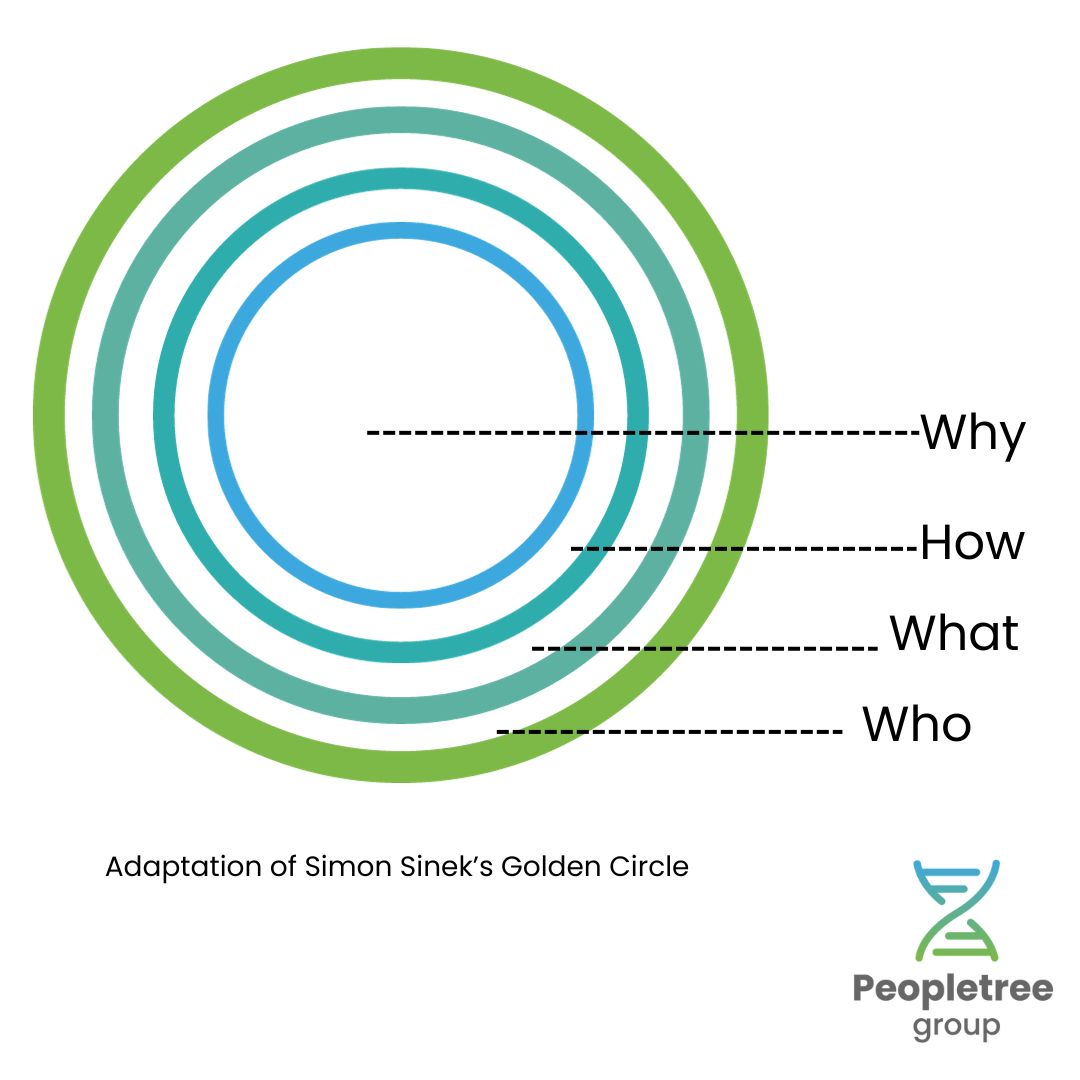Start with 'why?' but end with 'who?'
Answer your critical ‘who’ questions.
Who should we hire? | Who has these skills? | Who are our high potentials?
If you had to break down the function of strategic HR into a single phrase, it would be to provide fast, accurate answers to the ‘Who’ questions that business leaders ask.
Simon Sinek, an inspirational business speaker’s popular TED Talk and book about “Start with why” is all about how the most successful organizations in the world all start with their purpose at the centre of their strategy. Purpose is a powerful driver and compass that can keep people aligned and connected.
But if you start with why, you have to end with the question of ‘who’ because no matter how great your why is, it’s the ‘who’ that will make this happen.
An article by AIHR on The State of Digital HR in 2023, makes the point that small companies can mostly get by with Excel- and Powerpoint-based data collation and analysis. On the opposite end, large companies have enterprise HR Information Systems with teams of people supporting them.
But the real struggle, is mid-sized companies (companies with between 50 and 500 leaders) who are under-resourced and over-stressed. They are big enough to have complex people challenges, but too small in that the majority of resources are dedicated to sales and delivery. Their people processes usually have to make the best with what they have.
This article is the first in an 8-part series that will look at how HR, the custodians of the critical ‘who?’, can provide accurate and fast answers to business leaders when they ask questions about talent.
View all articles in the series
This is the introductory article in a series of articles about "Answering the Question of Who." Read all articles in the series.
The two challenges of answering 'who?' questions
HR faces two main challenges when answering critical “who” questions:
- Accuracy: HR handles people-related queries, and everyone tends to have an opinion about people. Other departments like sales, operations and finance rely on data-backed decisions because they have systems that allow them to measure their work, and established processes for accuracy. But HR often lacks these tools. This absence means a culture of making decisions based on evidence is often missing.
- Speed: A lack of evidence leads to delays in answering ‘who’ questions, because decisions are then defaulted to opinions. Unlike other departments that can answer questions relatively accurately and quickly because they have good data, efficient systems and processes supported by technology, mid-sized companies face resource limitations, making it challenging to address complex people-related issues.
In an article by AIHR on The State of Digital HR in 2023, it makes the point that small companies can get by with Excel and Powerpoint. Large companies have enterprise HR Information Systems with teams of people supporting them. But mid-sized companies (companies with between 50 and 500 leaders) are under-resourced and over-stressed.
They are big enough to have complex people challenges, but still small enough that the majority of resources are dedicated to sales (revenue) and delivery (costs). Their people processes usually have to make the best with what they have.
Throughout this series we will address these two challenges and talk about how the four enablers: data, processes, culture and technology can help HR provide fast and accurate answers to the critical ‘who’ questions that their business leaders are asking.

Why fast and accurate answers to 'who' questions matter
Simon Sinek has a valid point about starting with why. So let’s be clear about why fast and accurate answers to your critical ‘who’ questions are important, and how you can tell if you’re getting it right.
The outcome of getting the ‘who’ answers right
By getting the ‘who’ answers right, you are Designing a People Ecosystem that creates a much better place for people to work in, and stay connected to your organization.
We are at a point where the command and control mindset that has driven, and still largely drives, the way we work is breaking.
We can see signs of it everywhere:
- In the great resignation driven by a change in worker’s priorities and a shortage of the right talent
- The great migration as more people started working from home during the pandemic and hybrid work models have continued post-pandemic
- The great disruption caused by radical changes in climate/economics/culture, depending on which book you read.
Ecosystem thinking in evaluating the health of your business
The concept of a People Ecosystem is a great reference for how businesses should operate.
In an ecosystem, each living and non-living thing contributes to the overall health of the ecosystem. Ecosystems are naturally more resilient, productive, adaptable, and valuable because of the contribution to a shared purpose.
Use this short questionnaire to evaluate the health of your current People Ecosystem and decide if your company is the place you want it to be, or if it can be improved by making sure you have the right people in the right positions.







